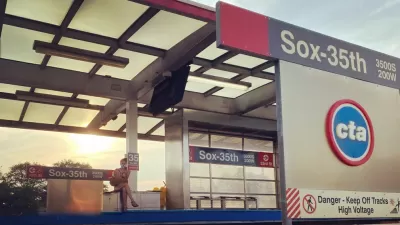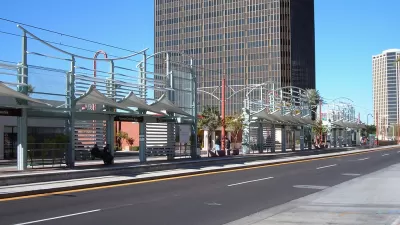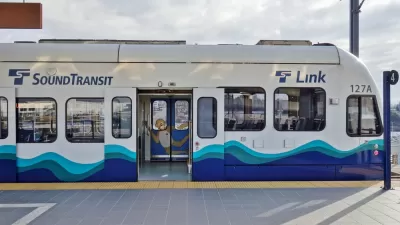Three projects are underway to optimize the efficiency and cost of public transit systems, thanks to government funding from the U.S. Department of Transportation (USDOT) and the U.S. Department of Energy (DOE).

Three organizations—the Massachusetts Institute of Technology (MIT), the Chattanooga Regional Transportation Authority (CARTA), and Utah State University (USU)—each received $1.75 million in federal funding to undertake projects to optimize energy and cost efficiency of public transportation systems with the use of artificial intelligence (AI).
"Researchers at MIT will look to develop a transit-centric Smart Mobility System to help agencies create short-term operating plans and adaptable real-time control strategies. CARTA will also develop a software platform using artificial intelligence (AI) to integrate fixed-route transportation with on-demand services and paratransit and determine where best to deploy electric buses. And USU aims to develop tools for planning and operations to help the large-scale electrification of bus fleets," reports Chris Teale.
According to the U.S. Department of Energy (DOE), a funder of the projects in collaboration with the U.S. Department of Transportation (USDOT), more efficiency and affordability in transportation systems will contribute to a larger goal of reduced carbon emissions in urban areas.
"The USU research project comes as more transit agencies look to electrify their bus fleets in a bid to cut emissions, but come up against issues like higher electricity costs from charging and the need to balance their schedules to ensure the vehicles have enough time to be charged without impacting service," Teale writes.
AI will play a key role in solving hypothetical scenarios in which electric fleets are in operation nationwide with such variables as inclement weather and route popularity.
FULL STORY: DOE, USDOT issue $5.25M in project grants to advance transit tech

Alabama: Trump Terminates Settlements for Black Communities Harmed By Raw Sewage
Trump deemed the landmark civil rights agreement “illegal DEI and environmental justice policy.”

Study: Maui’s Plan to Convert Vacation Rentals to Long-Term Housing Could Cause Nearly $1 Billion Economic Loss
The plan would reduce visitor accommodation by 25% resulting in 1,900 jobs lost.

Planetizen Federal Action Tracker
A weekly monitor of how Trump’s orders and actions are impacting planners and planning in America.

Wind Energy on the Rise Despite Federal Policy Reversal
The Trump administration is revoking federal support for renewable energy, but demand for new projects continues unabated.

Passengers Flock to Caltrain After Electrification
The new electric trains are running faster and more reliably, leading to strong ridership growth on the Bay Area rail system.

Texas Churches Rally Behind ‘Yes in God’s Back Yard’ Legislation
Religious leaders want the state to reduce zoning regulations to streamline leasing church-owned land to housing developers.
Urban Design for Planners 1: Software Tools
This six-course series explores essential urban design concepts using open source software and equips planners with the tools they need to participate fully in the urban design process.
Planning for Universal Design
Learn the tools for implementing Universal Design in planning regulations.
Caltrans
Smith Gee Studio
Institute for Housing and Urban Development Studies (IHS)
City of Grandview
Harvard GSD Executive Education
Toledo-Lucas County Plan Commissions
Salt Lake City
NYU Wagner Graduate School of Public Service





























